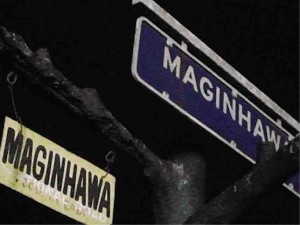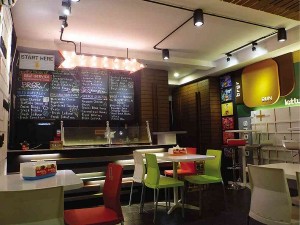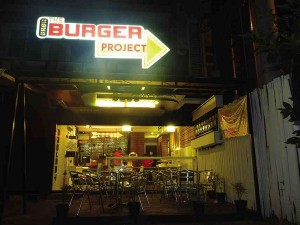Food is it, along Maginhawa St.

MAGINHAWA St. has become a start-up business hub with a ready market in nearby UP Diliman. Photo by Norman Lee Benjamin Riego
“Maginhawa is not booming; it’s already there.”
Such was the assertion of a food establishment owner when asked about Maginhawa’s recent development as a food hub. Maginhawa is the 2-kilometer long main thoroughfare of UP Teacher’s Village in Quezon City.
It has been the subject of food features in blogs and media, with Inquirer Lifestyle saying, “Whether it’s quick lunch or snack, family dinner, date night, or late-night drinking session with buddies, Maginhawa has it all.”
In having it all, of course, there is always someone leading the charge. Enter Moonleaf Tea Shop. With roots as a start-up business motivated by the owner’s relations with the owner of another start-up business, Moonleaf encapsulates the Maginhawa environment.
“Maginhawa is a start-up business hub because it is perfect for people with not much capital,” Moonleaf owner Adrian Adriano says. Opening in 2010, the first Moonleaf was a small store in Magiting St., a sub-street of Maginhawa, with two tables and six chairs.
Article continues after this advertisementBut after two months, word got around about the tea place and its wintermelon milk tea. As such, the store became a hit, proving Adriano correct that there was hype on healthy lifestyle as represented by tea.
Article continues after this advertisementMoonleaf opened its second branch in Maginhawa in 2011— a bigger store that could sit more customers. At present, Moonleaf Maginhawa serves 300 to 400 cups a day from 10 a.m. to 11 p.m. (Moonleaf Magiting customers drink 150 to 200 cups a day).
Adriano’s vision is for Filipinos to make drinking tea a habit. The Tea Habit was actually his first name for the store, but was turned down in consultations for being weak. The delightful “Moonleaf” name was just actually a tale of trial and error ending in success.
Anchored upon “leaf,” being the main ingredient of milk tea, Adriano then partnered it with different words. After four months of crashing with words ranging from colors to shapes, “moon” was inspired by the “star” in a popular coffee shop.
And so, Moonleaf was born— tea leaves complemented by moon-like pearls and moon-like temperature. Now with 38 branches nationwide, Adriano is eyeing global expansion and is now in talks for an Indonesian franchise.
With all the success, Adriano still views Moonleaf Magiting and Maginhawa as his babies and top performers. For such, the owner credits the Maginhawa environment. “There is a ready and reliable market in UP,” Adriano says.
Indeed, being one jeep ride or 10-minute drive away from campus, Maginhawa has the Iskolar ng Bayans as ready and reliable market. According to the UP Diliman website, there are over 22,000 students enrolled in academic year 2012-2013.
“I go to Maginhawa because it offers a variety of choices, and it’s accessible,” Eunille, a UP student says. With students filling food establishments to satisfy their physiological appetite, The Burger Project owner and executive chef Edward Bugia is proven correct: Maginhawa is already there.
The Burger Project is one of the newer food establishments to take advantage of the boom. Opening in 2010, it replaced Pino Restobar, also owned by Bugia and company, which relocated to a bigger store. From 11 a.m. to 12 a.m., The Burger Project serves more than 200 customers a day.
“We did not let go of the spot in Maginhawa because it is lucky for us,” Bugia says. The luck, as concretized by Bugia, includes ready and reliable market, cheap rent, and community support. The Burger Project has now expanded to Taft Ave. and Jupiter St.
However, Maginhawa’s success also entails the question of zoning. Much like Aguirre Ave. in BF Homes, Parañaque—Adriano compared Maginhawa’s rise to that of Aguirre’s earlier— Maginhawa is in the heart of a residential area.
Parañaque government’s response to Aguirre’s rise was to reclassify it from residential to commercial. Homeowners answered with resistance, pushing a petition and filing a court case. In the end, the Supreme Court sided with city hall and set a precedent that local government can enact police power in reclassifying areas that have evolved.
As such, the 2012 Quezon City Comprehensive Land Use Plan classified Teacher’s Village as medium-density residential zone—characterized by multi-family housing like duplexes, townhouses, or row houses. The CLUP then stated that Maginhawa is a minor commercial zone—characterized by commercial and trade activities on a district scale.
Unlike Aguirre though, Maginhawa’s reclassification has no opposition from homeowners. “As long as you follow the rules, they will support you,” Bugia says.


